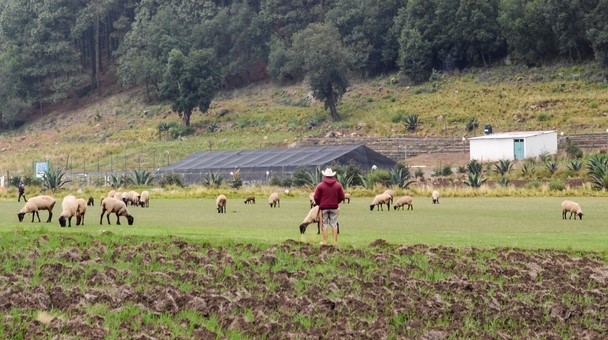IICA and Mexico’s agrarian registry strengthened legal frameworks for and land use planning by rural families

Mexico City, 22 May 2019 (IICA). - The Inter-American Institute for Cooperation on Agriculture (IICA) and the National Agrarian Registry (RAN) of Mexico have fulfilled the goals established in 2018 for two specific programs, which have provided rural farming families in the country with greater legal certainty and property security.
Since 2015, IICA and RAN (a department of the Secretariat of Agrarian, Land and Urban Development of Mexico- SEDATU) have been executing two programs: Registration and Regularization of Agricultural Legal Documents (RRAJA) and Modernization of the National Rural Cadaster (PMCRN), which have allowed for driving and monitoring the updating of cadasters and registries for farming units, as well as developing a platform on common land.
As of late 2018, the programs had benefited more than one million users of agrarian information and had facilitated the certification and corresponding regularization of farming units, thereby surpassing the goals that had been established for the program. Mexico has a total of 32,082 farming units.
IICA and RAN have executed the programs with the aim of contributing to greater legal certainty and property security for common land in Mexico, which represents 50.8% of the national territory; contains three-fourths of the country’s biodiversity, forests and jungles, as well as two-thirds of the country’s water resources; and includes 60% of Mexico’s coastlines.
During the signing of the records of settlement, Diego Montenegro, IICA Representative in Mexico, and Plutarco García, Director in Chief of RAN, highlighted the achievements in 2018.
“Together with IICA, we are certain that we are achieving progress through these programs, which facilitate land-use planning and provide greater legal certainty for common land in Mexico. Therefore, we must strengthen this relationship,” stated García.
Montenegro underscored IICA’s commitment to these projects “of great relevance, given that they allow for updating Mexico’s agrarian registry and for better organizing farming units, which represent basic elements required to advance towards rural development,” he explained.
In 2018, the incorporation of cutting-edge technology and georeferencing mechanisms for farming units, as well as the digitalization of files and blueprints, allowed for recovering from agricultural lags.
More information:
José Ayala, IICA project manager.
jose.ayala@iica.int